This webpage provides running updates into the global campaign to pressure the UN Food and Agriculture Organization (FAO) to sever its partnership with CropLife International, the world’s biggest association of pesticide manufacturers. The campaign is co-coordinated by PAN Asia Pacific and PAN North America, and supported by a broad network of civil society and Indigenous Peoples organisations.
Campaign materials (e.g. social media cards, infographics, messages) can be freely downloaded and used to share our message: Stop to the FAO-CropLife #ToxicAlliance!
PAN Asia Pacific (PANAP) joins civil society and Indigenous Peoples organisations in welcoming the end of a three-year controversial partnership agreement between the UN Food and Agriculture Organization (FAO) and CropLife International, an association of the world’s largest agrochemical corporations.
Led by PAN International, 11 organisations today issued a statement saying that they have received confirmation of a decision by the FAO to not renew its Letter of Intent (LoI) with CropLife.
The groups said that they now looked forward to the FAO delivering on its commitments in the new Global Framework on Chemicals (GFC) and leading the work of the Global Alliance on Highly Hazardous Pesticides (HHPs).
Today, 11 global civil society and Indigenous Peoples organizations representing small-scale farmers, agricultural workers, trade unions, and rights holders urged Mr. Qu Dongyu to begin his new term as Director General of the UN Food and Agriculture Organization (FAO) on a positive note by ending a controversial partnership with the pesticide industry signed during his previous term, and taking leadership on global action to phase-out Highly Hazardous Pesticides (HHPs).
At its 43rd Conference early in July, the FAO appointed Mr. Qu as Director General for a second term of four years. The appointment, which was uncontested with no other nominations, comes at the heels of an investigative report revealing shipments of pesticides that FAO made to several countries during the Director General’s first term, while a partnership agreement with CropLife International (CLI), the association of world’s largest agrochemical companies, was in place.
After a high-level meeting last week, we, representatives of civil society & Indigenous Peoples organizations, urgently call on the UN Food and Agriculture Organization (FAO) to end its existing agreement with CropLife International (CLI), to publicly clarify the nature of its ties with the pesticide industry, and to subject these ties to greater transparency and accountability.
On July 25, representatives from PAN, FIAN, IITC and IPEN met with FAO Deputy Director General Beth Bechdol and her colleagues in the Project Support, Partnerships, and Plant Protection divisions. This meeting was held more than a year and a half after we – 11 civil society and Indigenous Peoples organizations – first made a formal request to sit down with the Director-General upon signing the Letter of Intent (LOI) between FAO and CropLife in October 2020. Our high-level meeting requests continued through the most recent June FAO Council meeting, amplified by the massive public opposition from hundreds of CSO & IP groups representing farmers, agricultural workers, and other communities, academics, scientists and funders from around the world, plus the over 187,300 people from over 107 countries that have petitioned the FAO to end this alliance with the pesticide industry.
Reminding the UN Food and Agriculture Organization (FAO) of its obligations to uphold human rights, 430 civil society and Indigenous peoples organizations from 69 countries across the globe today called on the FAO Council to rescind the agency’s partnership with CropLife International, the industry association representing the world’s largest pesticide manufacturers.
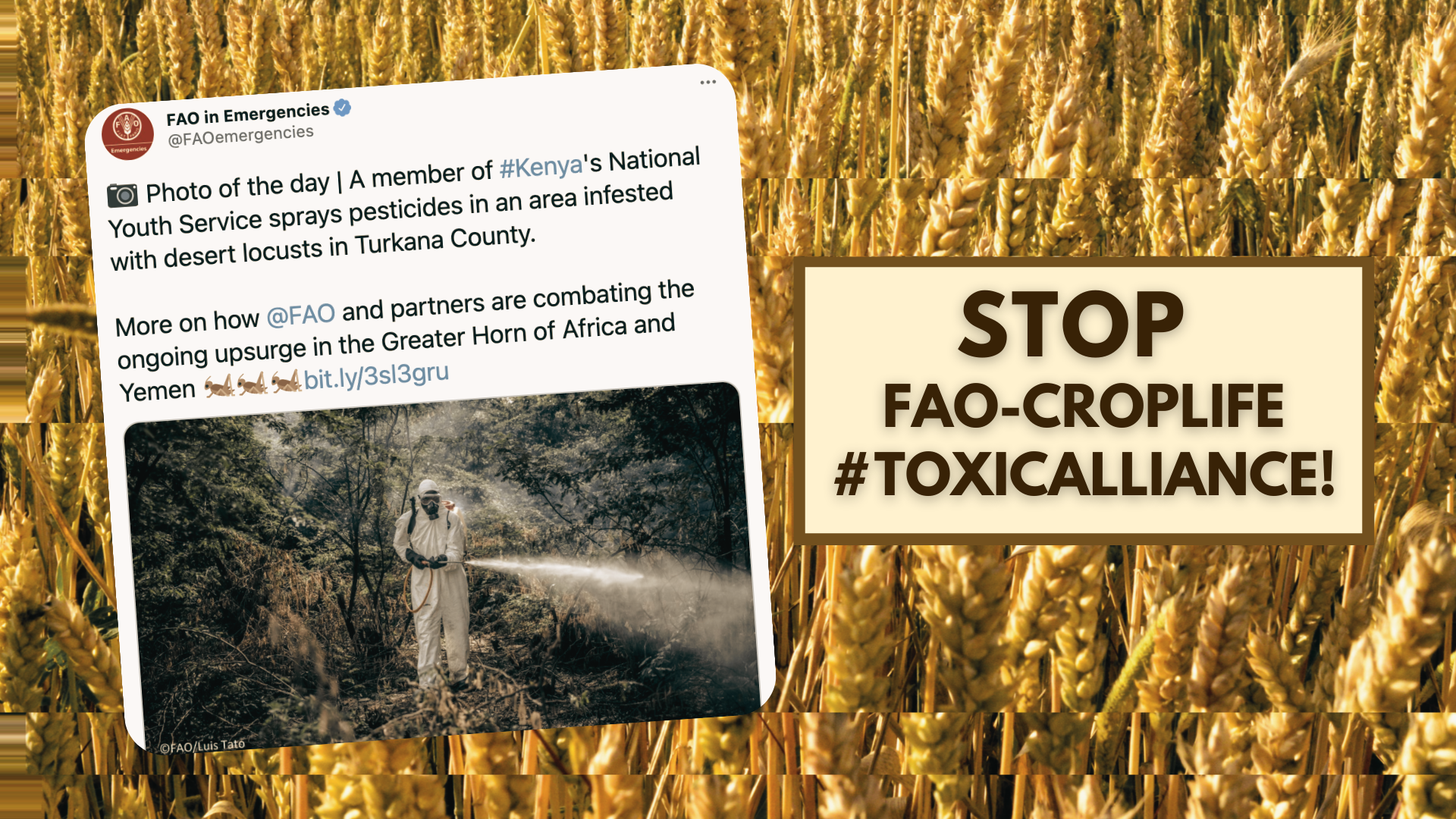
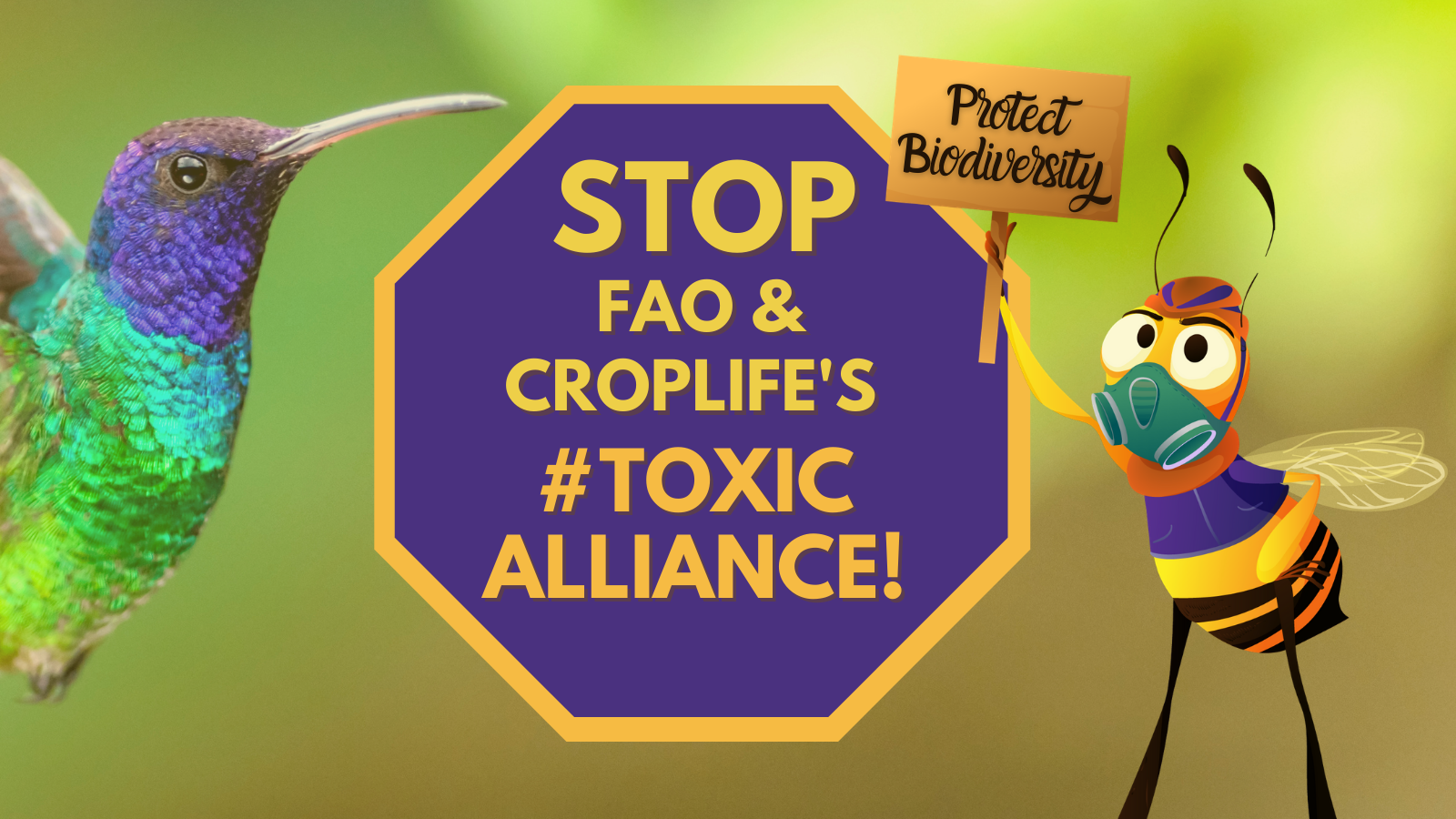
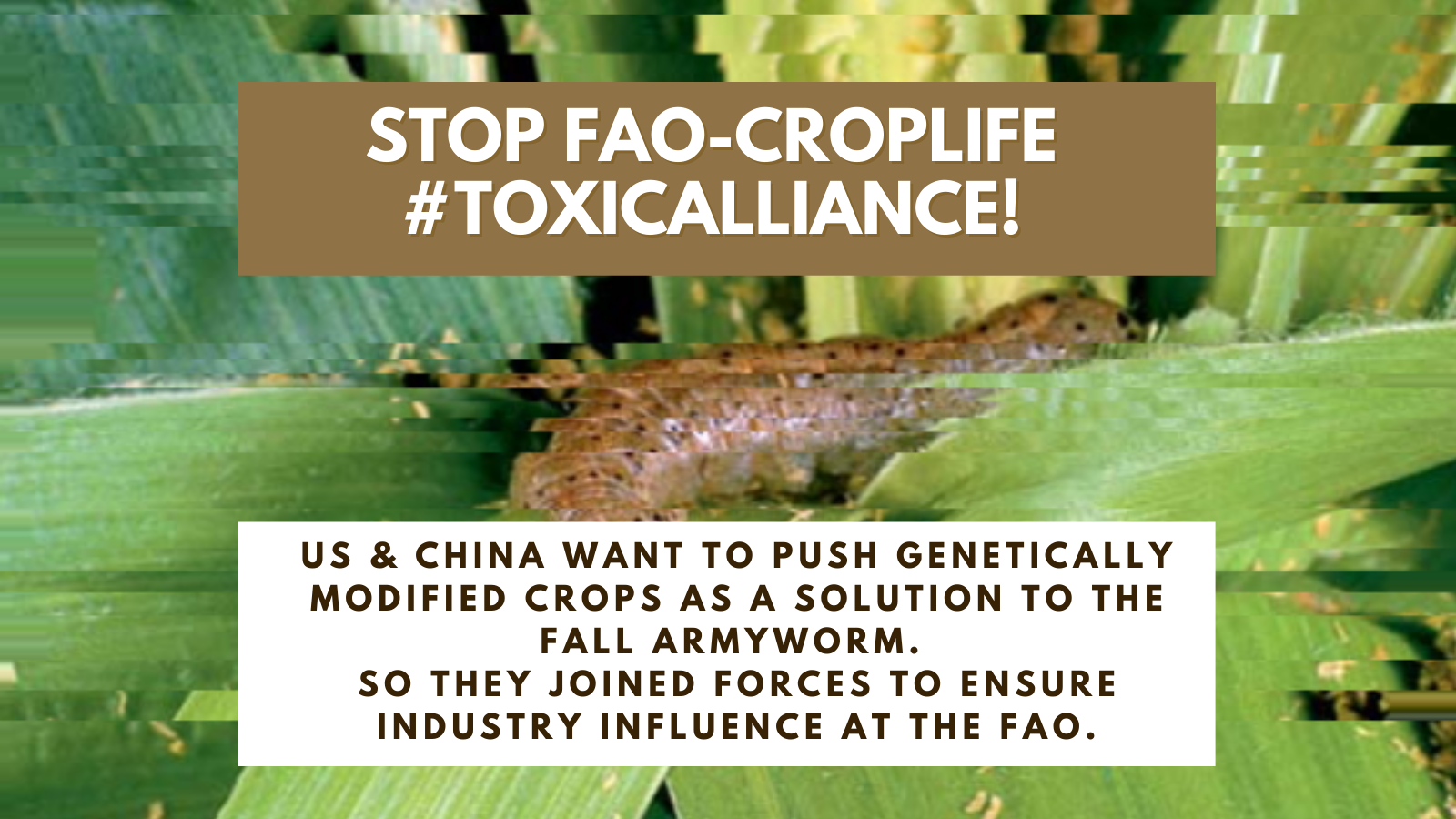
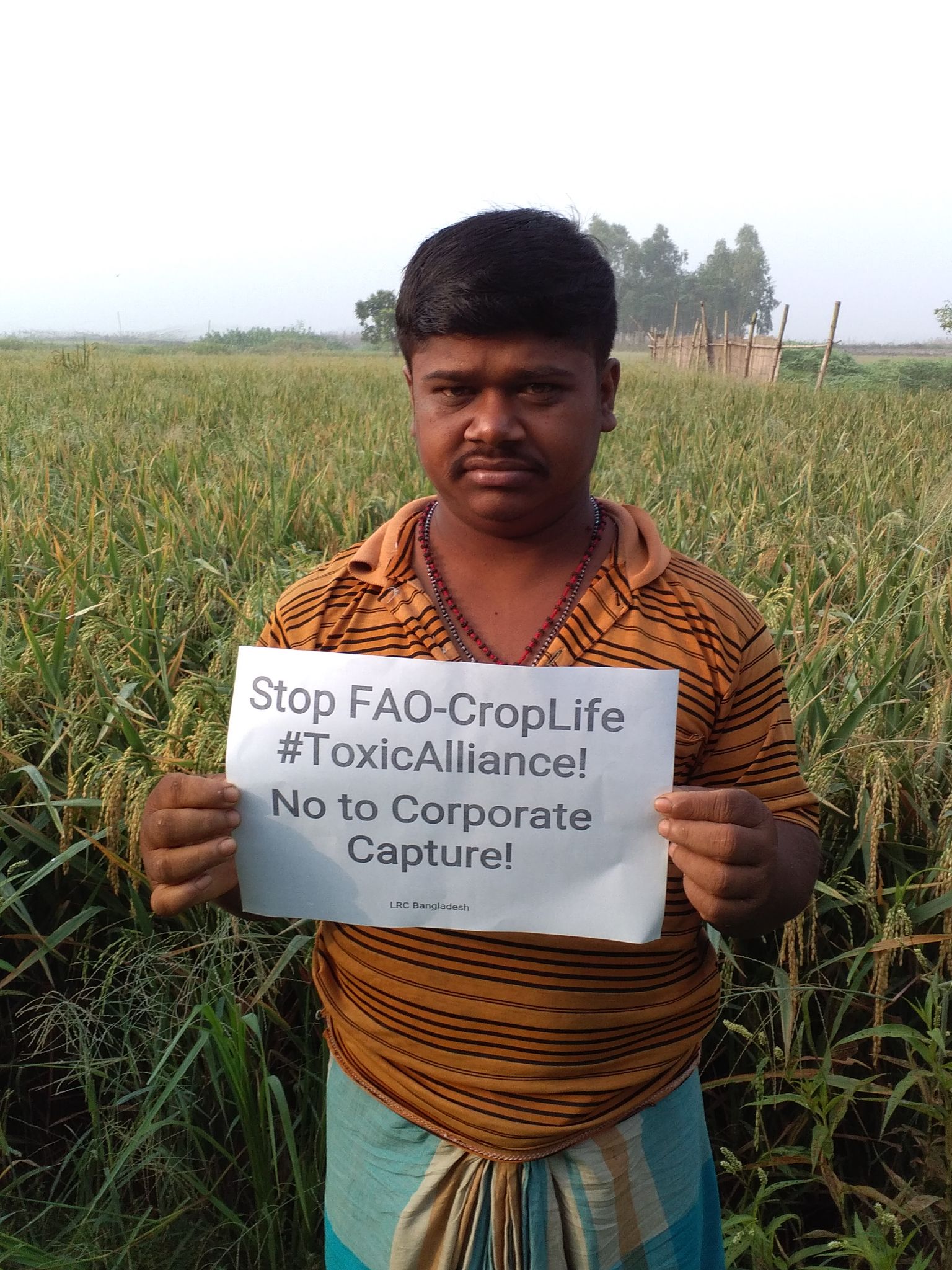
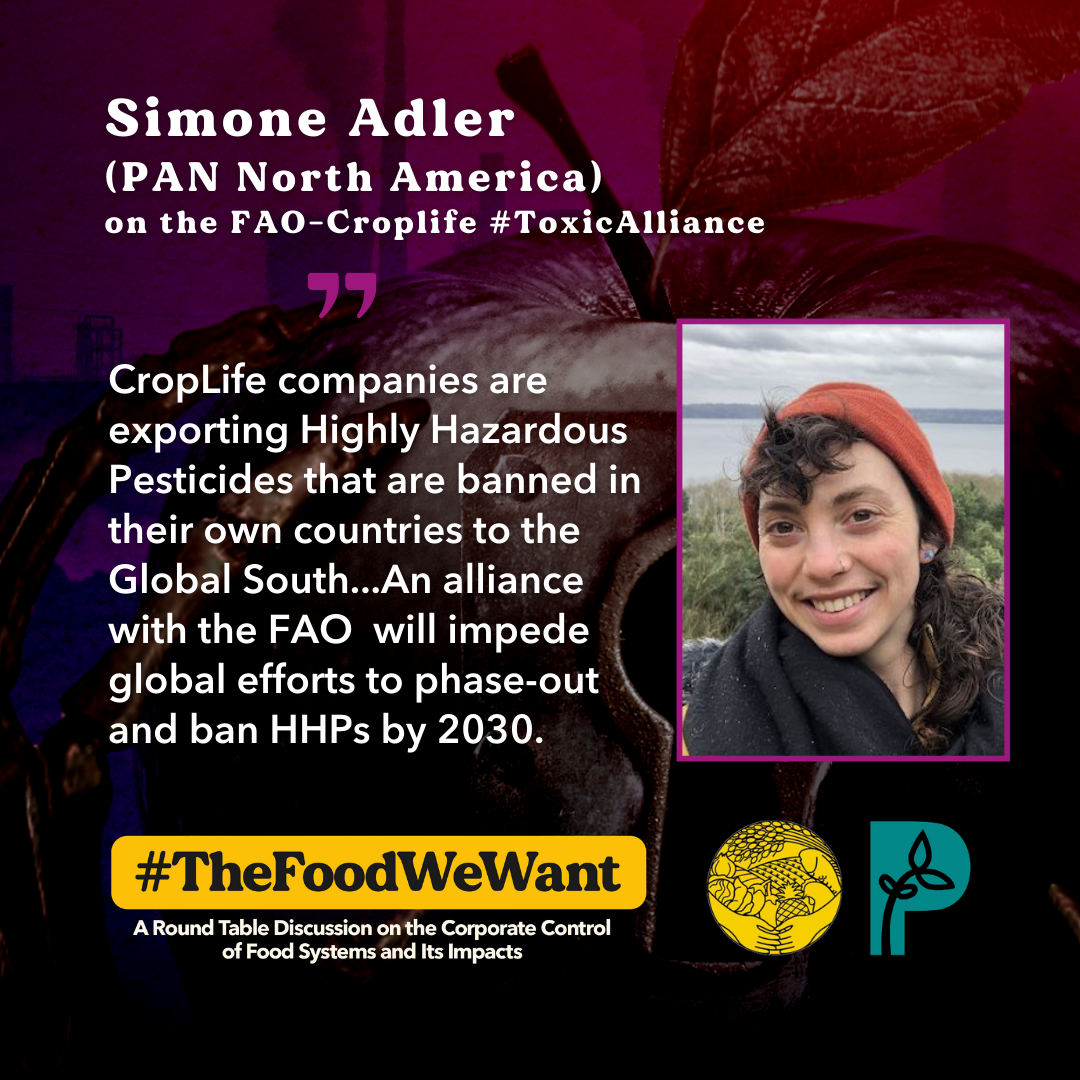
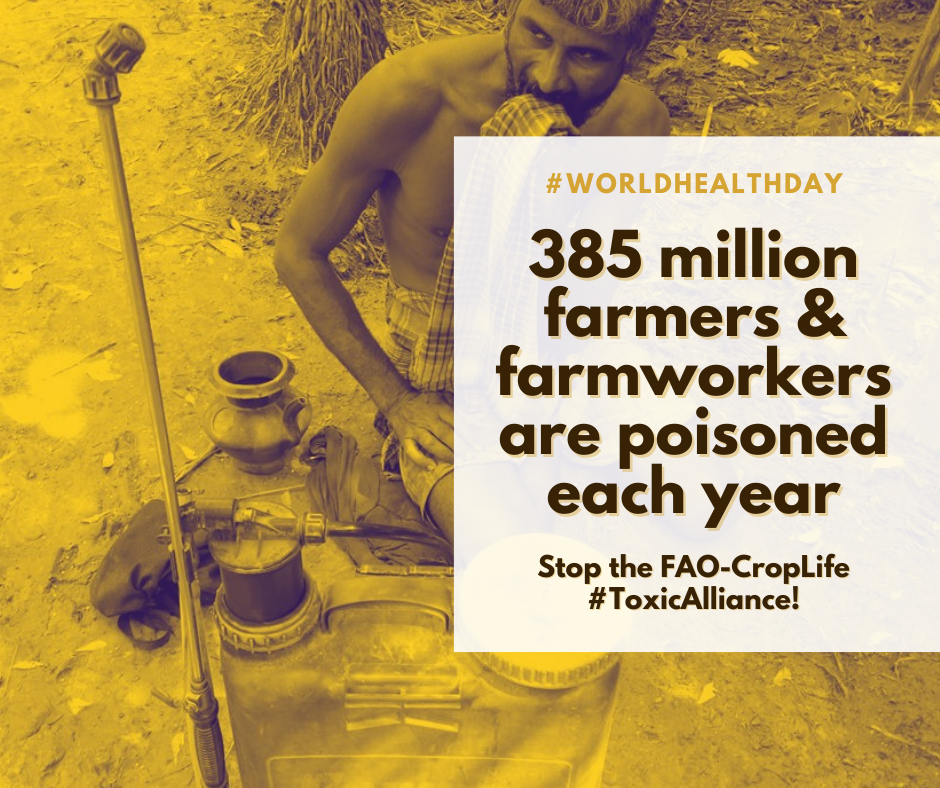
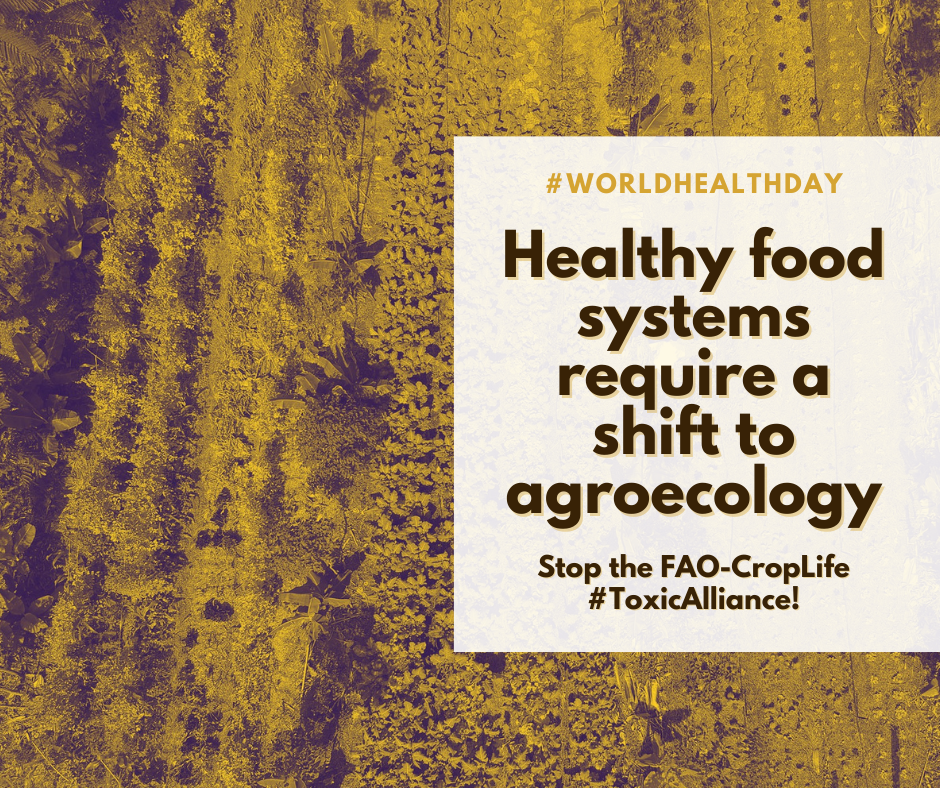
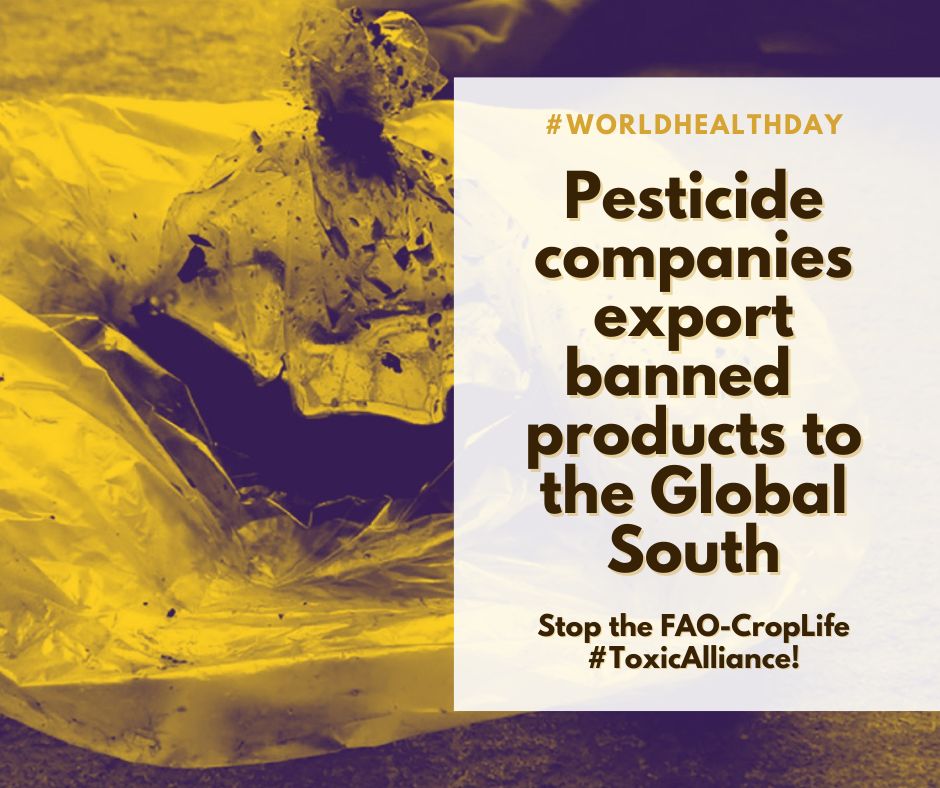
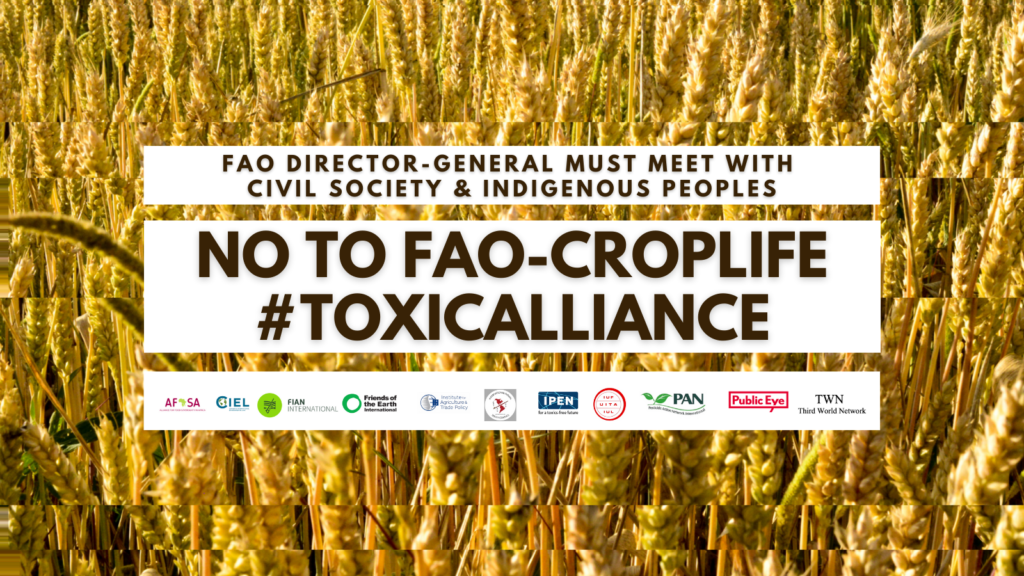

Mailing Address:
48, Persiaran Mutiara 1, Pusat Komersial Bandar Mutiara, 14120 Simpang Ampat, Penang, Malaysia
Telephone: +604 5022337
Email: info@panap.net